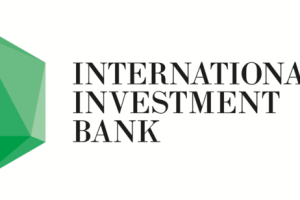Alătură-te comunității noastre!
Vezi cele mai recente știri & informații din piața de capital

Households around the world are using coronavirus-enforced self-isolation as an opportune time to curl up and catch up on movies. Below are five films that our team feels both educate and entertain.
Tales told in films are often inspired by real-life events and circumstances. But can such fiction teach us things about managing money? Sometimes they can make unexpected points; a film about making money on the stock market can teach lessons on buying a home, for example. Other films can be less obviously focused on money, yet still nudge the viewer towards certain elements of financial planning.
At a time when people are caught between wanting a heavy doze of escapism away from the coronavirus, yet have as many concerns over their financial health as they do over their physical health, here are five films that may help on both counts.
Lesson: Dangers of predicting the future, avoid attribution error and bias
Wealthy share trader Louis Winthorpe III (Dan Aykroyd) was born with the proverbial silver spoon in his mouth. Everything he does signals success. But Louis comes to grief when he bumps (literally) into street hustler and beggar Billy Ray Valentine (Eddie Murphy) outside his home.
His employers, the Dukes, bet they could swap him with the street hustler and that both men would revert to type. Billy would fail even in vastly improved circumstances, and Louis would turn his reduced situation to profit.
In the event, Louis became an angry drunk, while Billy shone in Louis’ job.
Worse still, when Billy and Louis discover the trick, they team up to take revenge by manipulating the price of orange futures – putting it out that it will be a bad harvest.
The Dukes are overconfident, based on past experience in the frozen concentrated orange futures market. Their plan is, as always, to buy low and then the price will rise, enabling them to sell high. But they are financially ruined when the price sinks instead: they fall right into Billy and Louis’ trap.
Underestimating the effect of environment, the role of luck, and the difficulty of predicting the future, especially when leaning on natural biases towards the familiar or even a tried-and-true rule of thumb, can be a recipe for disaster.
Lesson: Always check the total cost of a money choice
College graduate Mae Holland (Emma Watson) has a dull customer service job where she spends her whole time on the phone chasing up people’s unpaid water bills.
She dreams of a chance to “make a difference”, so when she lands an interview at internet company The Circle, she is excited and flattered. As anyone who has read any behavioural economics knows, decisions made in the heat of the moment won’t always pan out well, especially when they’re choices that involve your future self.
At her new job, peer pressure to participate and be social gets her quickly following the herd in a bid to be liked and become a great team player. However, Mae becomes uneasy when she discovers that the company’s technology is harvesting and using vast amounts of personal data for controversial reasons.
She puts it out of her mind, choosing instead to focus on all the obvious good that the company is doing. But she can ignore the darker side no longer when an unfortunate accident, facilitated by the company’s technology, causes the death of a close friend.
Based on a 2013 novel of the same name by Dave Eggers, The Circle grapples most obviously with the issues of the internet age – but it speaks also to the choices we make about our earnings, which are key to future finances.
It’s important not to ignore the more difficult aspects of a career decision. The salary might be right but will the role fit with what we’ll want in future, and have we calculated all the relevant costs?
Lesson: Look ahead and focus long-term when it comes to finances
The challenge of giving up current benefits for future returns is captured by Mr Dawes (Dick van Dyke), the chairman of Dawes, Tomes, Mousley, Grubbs Fidelity Fiduciary Bank, when the young Michael Banks (Matthew Garber) is brought in to deposit his first tuppence.
While Michael would much prefer to keep his money and enjoy it today, through song Mr Dawes explains that he will be much better off if he invests his wealth.
“If you invest your tuppence wisely in the bank
Safe and sound.
Soon that tuppence safely invested in the bank
Will compound.
“And you’ll achieve that sense of conquest
As your affluence expands.
In the hands of the directors
Who invest as propriety demands.”
While the song captures young Michael’s attention, Dawes snatches this tuppence, causing Michael to yell out. His obvious distress shows how tempting it can be to use money today, rather than investing it for the future. This is temporal discounting, describing our natural preference for immediate gains.
Lesson: House prices can fall/beware of the availability bias
It’s 2008 and disgraced stockbroker Gordon Gekko (Michael Douglas), jailed in the original Wall Street movie for insider trading, has a book to promote. Out on the speaking circuit, he addresses a roomful of college students, telling them about the recent financial crisis.
He lectures them about the “bartender who buys three houses he can’t afford with no money down” and even their own parents who “remortgage their $200,000 home for $250,000” before blowing the lot.
They “go down the mall and they buy a plasma TV, cell phones, an SUV, and hey, ‘why not a second home while we’re at it’, because, gee whiz, we all know the prices of houses in America always go up, right?” he says.
Of course prior to 2008, house prices were soaring globally and many assumed they would continue to rise – a classic case of availability bias.
Then the financial crisis happened. House prices plummeted and many people ended up in negative equity or worse, having their homes repossessed. Something to think about before making what is likely to be one of the biggest financial decisions of your life.
Lesson: Life events can be expensive – and it’s easy to overspend
Former pastry chef Annie Walker (Kristen Wiig) has hit rock bottom. Her bakery has closed down, leaving her broke and living in a cheap shared flat with a weird pair of housemates.
Then her best friend, Lillian (Maya Rudolph), gets engaged. And with that comes a whole heap of expense: the Parisian-themed bridal shower, $800 bridesmaid dresses, and a hen weekend in Las Vegas.
As well as highlighting the emotional angst that can accompany wedding planning, this film points to the extravagances of the industry. It has been reported that the average nuptial celebration in the UK can cost up to £27,000, with guests themselves forking out more than £430.
And peer pressure can lead people to spend money they don’t have, in a bid to keep up with their friends.
Courtesy of ING Bank N.V. as copyright owner
[ajax_load_more]









Vezi cele mai recente știri & informații din piața de capital